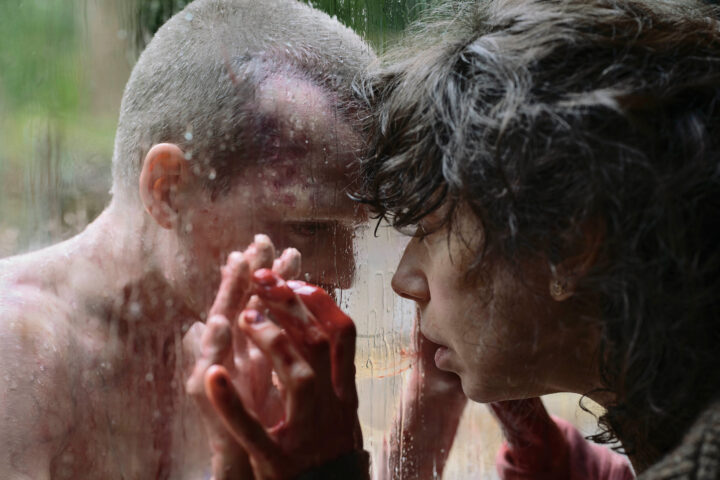The new drama Thank You for Your Service is as powerfully written and acted an examination of the experience war veterans face upon returning home as the movies have seen in ages. It’s also an important one, which sounds perhaps hyperbolic, but it really has something valid on its mind—the drivers of PTSD and the struggle to receive, and accept, help.
A sort of latter day companion to Hal Ashby’s 1978 drama Coming Home and grittier than Kimberly Peirce’s 2008 take Stop/Loss, Thank You for Your Service is a movie that hits nearly all of its notes right. Written and directed by Jason Hall from the 2013 book by David Finkel, the picture follows a handful of returning Kansas Iraq vets through some of the expected elements of the homecoming experience, but then goes deeper in a movie that is both modestly scaled and largely free from sentiment.
It’s all here in the day-to-day struggle to rebuild a life after trauma—the initial optimism that is quickly supplanted by feelings of hopelessness, dead ends and the inability of anyone else to truly understand, which here extends to governmental bureaucracy where if a soldier even seeks help he may be admonished by a senior officer for setting a bad example. Benefits and support systems may be months away or completely inaccessible, and after a big welcome home celebration, then what? Well, PTSD, for starters, from which the movie suggests there is no escape; just varying degrees. Essentially, they go from one battle to another.
Miles Teller is vet sergeant Adam Schuman, returning to rural Kansas after a Humvee explosion that killed a fellow solider and led to the maiming of another. He may or may not have had varying degrees of responsibility in these events, but upon returning to wife Saskia (Haley Bennett) and their children, he soldiers forward, starting over. But the wife (Amy Schumer, effective in a small role) of the deceased is also a neighbor, and eventually he will have to deal with these demons.
The Schumanns have fallen on hard times, having to rent out their lovely home in favor of a smaller, less appealing one in a worse neighborhood, a situation Adam plans to rectify and a metaphorical allusion to getting back what once was (at one point, he even sneaks onto the property to water the lawn).
His best friend and platoon-mate “Solo” Aieti (excellent Beulah Koale, intensely haunted) is an American Samoan whose head injuries are responsible for memory loss; in a terrific scene he undergoes recall exercises with a patient doctor. With a pregnant girlfriend and increasing psychological trauma, his hopelessness leads him to a small-time drug dealer and he quickly descends into criminality.
The third man here—and odd man out, really—is confused Will (Joe Cole), who returns home to find that his girlfriend, a local bank teller, has cleaned out their apartment, his savings and moved on with her life, without so much as a Dear John letter.
The movie does many things well, including a vivid depiction of the brotherhood between the three men, the secrets they keep and Schuman’s feelings of responsibility for their well being and to Schumer’s character, with whom we know a reckoning will arrive.
It also presents a picture of returning soldiers as society’s spoils, unable to receive the treatment and benefits they need and, in increasing desperation, hurting both the people they love and themselves. It is a sobering movie that, in its clear-eyed way, honors veterans by simply telling the truth of their stories.
Teller, the gifted young actor (currently equally good in ONLY THE BRAVE), digs deep down into a character paralyzed by the guilt of two incidents, including the dropping of another soldier (Scott Haze) who had been critically wounded, and to whom he pays a moving visit late in the picture.
Hall, who wrote the screenplay for Clint Eastwood’s American Sniper, presents here a much more complex and thoughtful portrait of a soldier’s psyche, without any of that film’s button-pushing jingoism.
3 1/2 stars.



